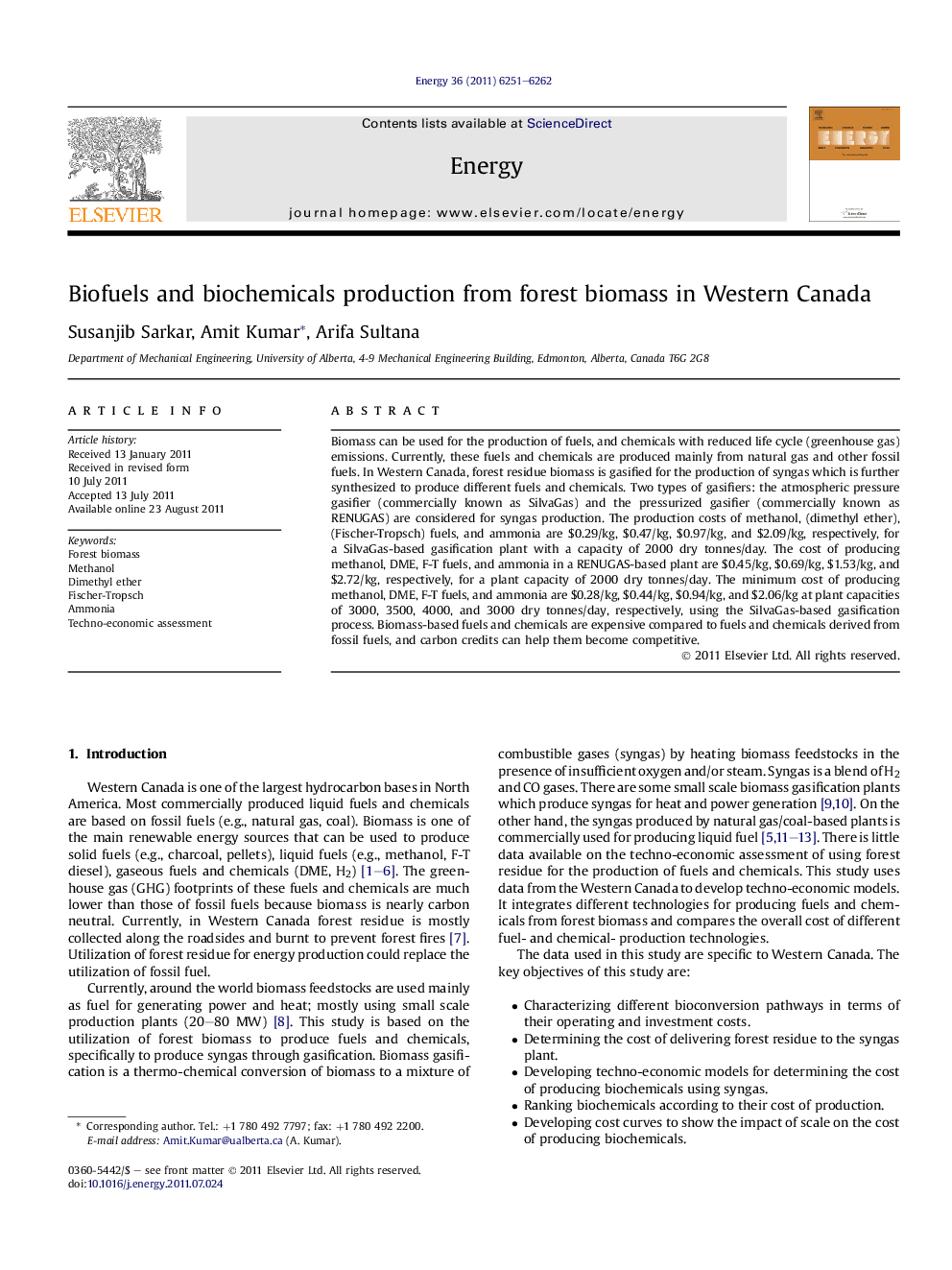| Article ID | Journal | Published Year | Pages | File Type |
|---|---|---|---|---|
| 1734031 | Energy | 2011 | 12 Pages |
Biomass can be used for the production of fuels, and chemicals with reduced life cycle (greenhouse gas) emissions. Currently, these fuels and chemicals are produced mainly from natural gas and other fossil fuels. In Western Canada, forest residue biomass is gasified for the production of syngas which is further synthesized to produce different fuels and chemicals. Two types of gasifiers: the atmospheric pressure gasifier (commercially known as SilvaGas) and the pressurized gasifier (commercially known as RENUGAS) are considered for syngas production. The production costs of methanol, (dimethyl ether), (Fischer-Tropsch) fuels, and ammonia are $0.29/kg, $0.47/kg, $0.97/kg, and $2.09/kg, respectively, for a SilvaGas-based gasification plant with a capacity of 2000 dry tonnes/day. The cost of producing methanol, DME, F-T fuels, and ammonia in a RENUGAS-based plant are $0.45/kg, $0.69/kg, $1.53/kg, and $2.72/kg, respectively, for a plant capacity of 2000 dry tonnes/day. The minimum cost of producing methanol, DME, F-T fuels, and ammonia are $0.28/kg, $0.44/kg, $0.94/kg, and $2.06/kg at plant capacities of 3000, 3500, 4000, and 3000 dry tonnes/day, respectively, using the SilvaGas-based gasification process. Biomass-based fuels and chemicals are expensive compared to fuels and chemicals derived from fossil fuels, and carbon credits can help them become competitive.
► Forest residue can be used for production of fuels and chemicals in Western Canada. ► Methanol, dimethyl ether, Fischer-Tropsch fuel and ammonia are focus of this study. ► This study estimates the production cost of these fuels and chemicals from biomass. ► Economic optimum sizes of production plants are also estimated through modeling. ► Costs of fuels and chemicals from biomass are higher than that from fossil fuels.
